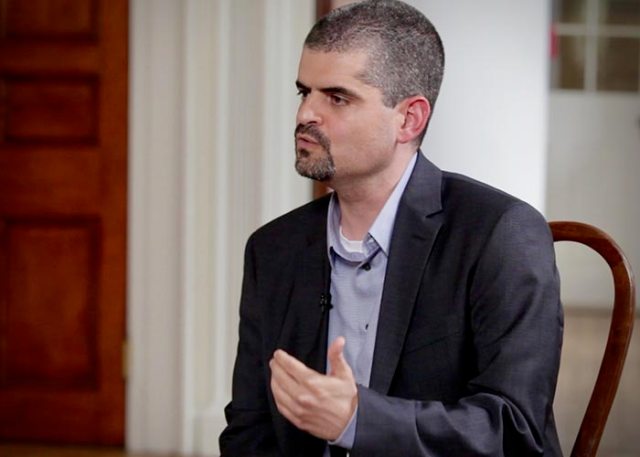The dominant worldview that has shaped science, technology, and business for centuries is on the verge of collapse.
This provocative claim comes from Bernardo Kastrup, a Dutch philosopher and computer scientist with a PhD in philosophy and a background in artificial intelligence and reconfigurable computing. Kastrup, who has become one of the most influential voices challenging materialism in contemporary philosophy, draws a striking parallel between our current moment and one of history’s most significant intellectual upheavals. In a recent statement, he suggests we’re witnessing a paradigm shift as momentous as the one that established physicalism itself—and that the smart money should be paying attention.

“It was around that time that the last major shift happened towards Physicalism,” Kastrup explains, referring to the late 19th and early 20th centuries. “The smart people of the time understood the significance of it. Nietzsche understood the significance of it, and he wrote about it 50 years before anybody else truly grasped the significance of what happened.”
Then comes his central thesis: “If you ask me, I think that’s happening again. 200 years later, it’s happening again. Physicalism is a dead man walking.”
Kastrup doesn’t believe this shift will happen overnight. Cultural inertia is powerful, and established ways of thinking don’t surrender easily. “There is only so far cultural reflexes and prejudice can deter the power of reason and evidence,” he notes. “There is only so far you can play that game eventually. Reason and evidence, purely by their staying power, sort of win.”
His timeline for this transformation is surprisingly near-term: “I think we are seeing that right now, in the 2020s and certainly into the 2030s.”
The Implications for Tech and Business
For business and technology leaders, Kastrup’s argument carries significant implications. The physicalist worldview—the belief that physical matter is the fundamental reality and that consciousness arises from material processes—has been the philosophical foundation for everything from neuroscience research to artificial intelligence development to organizational management theories.
Yet cracks in this foundation are becoming harder to ignore. The “hard problem of consciousness” remains unsolved despite decades of neuroscientific advances. Quantum mechanics continues to reveal phenomena that challenge materialist assumptions. And in AI, the question of whether Large Language Models could be conscious has forced technologists to confront philosophical questions they once considered purely academic.
Major research institutions are increasingly taking consciousness studies seriously. The Association for the Scientific Study of Consciousness has grown substantially, while tech figures like Sam Altman and Elon Musk have publicly grappled with questions about AI consciousness and the nature of mind. Even in business schools, there’s growing interest in contemplative practices and altered states of consciousness as tools for innovation and leadership.
If Kastrup is right—if we’re truly at an inflection point comparable to Nietzsche’s era—then the companies and leaders who recognize this shift early will have a significant advantage. Just as the move toward physicalism reshaped everything from medicine to manufacturing, a post-physicalist paradigm could fundamentally alter how we approach artificial intelligence, mental health, organizational culture, and the very purpose of business itself. The question isn’t whether such ideas seem radical today, but whether today’s radicals will be tomorrow’s visionaries.